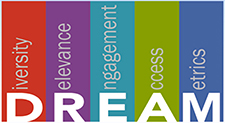By Victor Henderson/reporter
About 15 percent of Americans have some type of learning disability, but most of them are undiagnosed, a NE counselor told South students Sept. 3.
Learning disabilities are neurologically based and range from dyslexia, which is reading-related, to dyscalculia, which is math-related, and they occur over a person’s life span rather than disappearing over time.
In What Is a Learning Disorder?, Anita Peters suggested that anyone who experiences trouble with learning should get tested. Many people with undiagnosed learning disabilities do not know they have the disorders because they have average to above-average IQ scores, Peters said.
“Appropriate diagnostic testing by a licensed professional is critical,” she said.
The tests for learning disabilities measure the ability to read, express thoughts on paper and solve mathematical equations. Testing is conducted by giving an IQ test then an achievement test. The results are assessed and compared by a psychologist, typically the one who administered it, Peters said.
Other major forms of disorders include attention deficit disorder and attention deficit hyperactivity disorder. These conditions are biochemical and, similar to learning disorders, should be diagnosed by a professional, Peters said. Both ADD and ADHD affect attentiveness, but ADHD has an impulsive factor that causes people to act and say things on impulse rather than considering the consequences.
“People with ADHD are in the best of company,” she said. “ADHD is not being defiant. It’s not a lack of willpower.”
Often, it just takes knowledge and awareness of the disabilities to know how to cope, Peters said.
“I think I might have a learning disability,” student Obadi Watson said after attending Peters’ seminar. “There are ways to manage your disorder.”
While some disabilities can have a negative impact on learning, the district has hired a diagnostician who can assist with identifying learning disorders. Students who want testing or more information can visit the disability support services office on any campus.

























